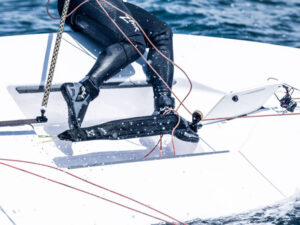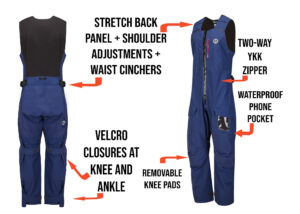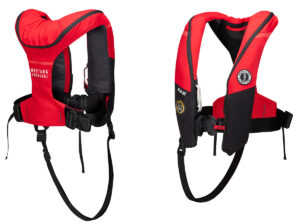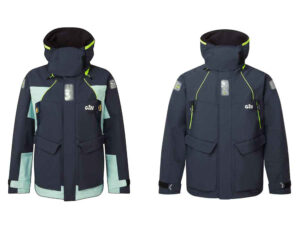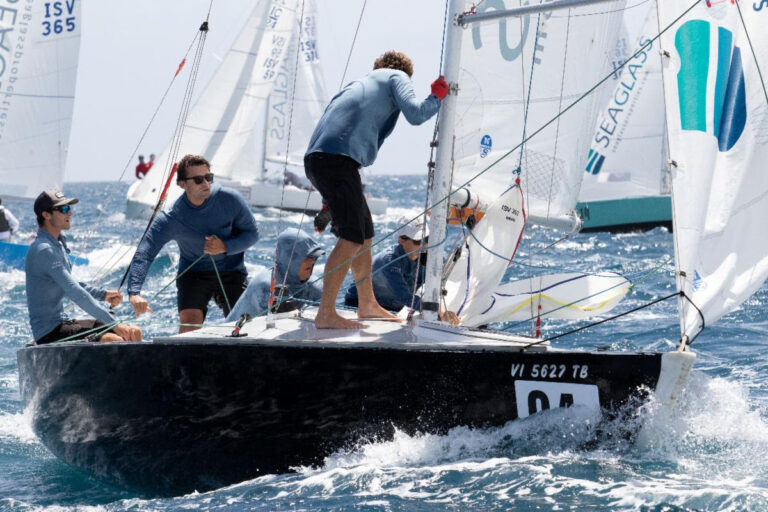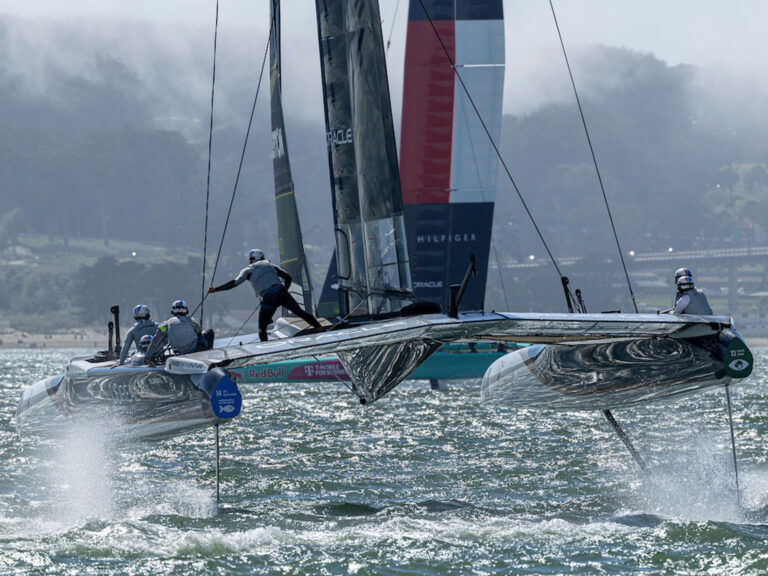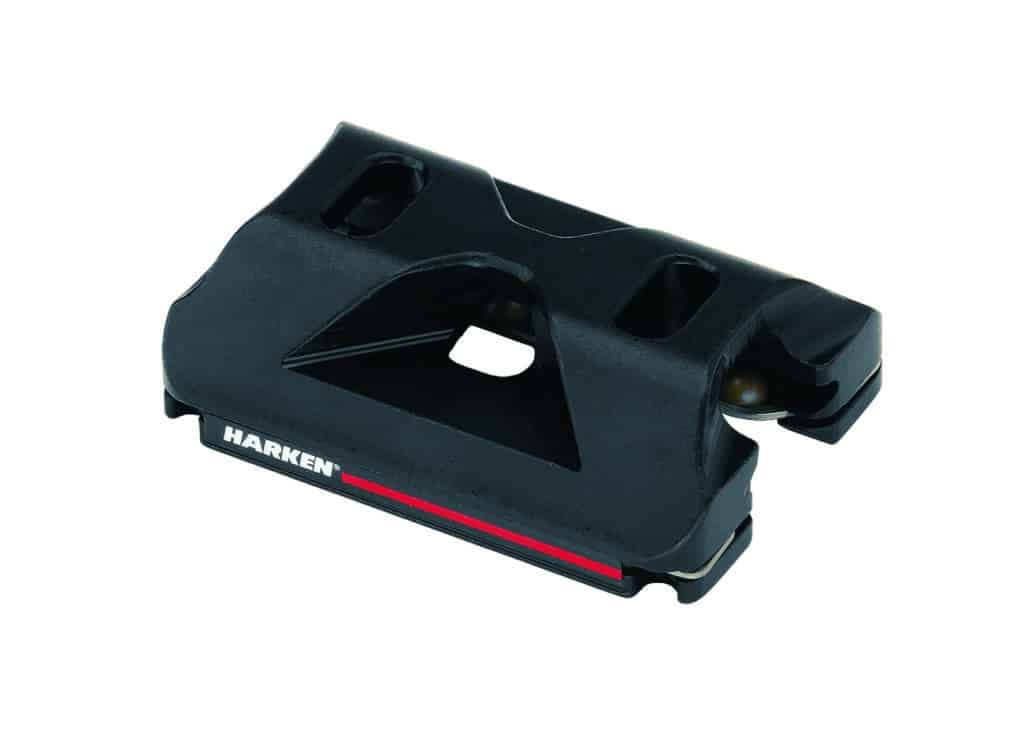
An evolution of Harken’s 2700 series of small-boat cars, the new 2767 car has no stainless hardware other than the ball bearing retainers—no shackles, pins or ring-dings. Everything’s soft-tied. In fact, there are just three main parts: an aluminum body, ball bearings and the two-ball bearing retainers. As a result, the car weighs in at an amazingly light 1.48 ounces.
The design was inspired by Adam Palfrey, who had been using the 2702 cars on the athwartship jib tracks he designed for use in the Etchells class (“A Sheeting Angle Solution”). For Palfrey, they were good, though not quite perfect, as he had to hog out a small section of aluminum on each car to allow the up-down line to work without chafing, plus they had stamped stainless control tangs with somewhat squared-off corners—ok, but not optimum for a spliced traveller control line.
Enter long-time Etchells sailor Chris Larson. “It started with him,” says Palfrey. “Chris knew the amount of work that had to be done to get the original car to work.”
Larson, in turn, pulled Harken’s Oakley Jones into the loop. Says Jones, “I looked at what Dog was doing and thought, ‘We can do this better.’ I sent pictures of Dog’s modified car to one of our engineers and said, ‘The Etchells class is currently modifying our 2702 car. Apart from not looking as nice as we’d like, the line going into it where it’s been milled out is chafing and the pin eventually bending from the where the line was going around it.’”
“Within a couple of days, Oakley had a 3D type of drawing,” Palfrey says. “And about three weeks later, he called and said ‘Do you want to go ahead and buy some?’ It was really impressive how quickly they turned this around.”
“Luckily, we weren’t starting from scratch,” says Jones, “so we could basically tweak the 2702 car to produce the new one. We carved away all the unnecessary aluminum we could and rounded all the edges.” The car has the additional bonus of no plastic end caps, something that in older versions would deteriorate in the sun, eventually failing and releasing the bearings.
The result is a car elegant in its simplicity. Traveller control lines run though rounded oval slots at each end, eliminating the need for tangs and providing a more rounded surface for control lines. Splice-in or luggage-tag a piece of 1/8 to 3/16″ Spectra or use a soft-tie block, such as one of Harken’s Carbo T2 block series, for a 2-to-1 setup. Three shallow grooves at the end of each oval lock the soft-tie loops in place. “It looks great, saves custom work, which is always expensive, and it’s just perfect for the job,” says Palfrey.
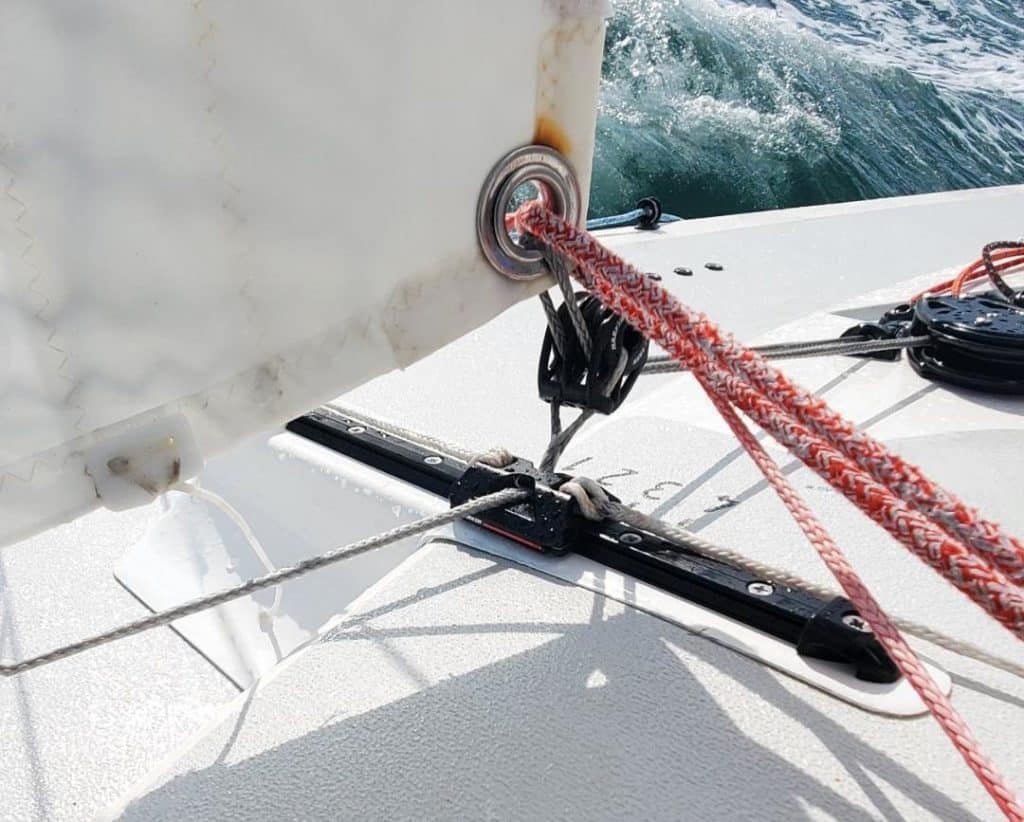
The center slot has rounded corners to allow smooth up-down line movement for fore-and-aft jib lead adjustment, as on Palfrey’s jib lead system. Or, use the car in a more traditional fore-and-aft jib car alignment by tying a Harken Carbo block there.
While the 13mm system is mostly used for jib tracks, Harken is also producing an up-sized version of the 13mm car, one that will fit a 22mm track, which is used for main traveller systems on E Scows, Etchells and similar-sized boats. Like its smaller sibling, it’s very light—a just 4 ounces. Current prices are: 13mm car ($135.50) and 22mm car ($199.95) at Harken.

